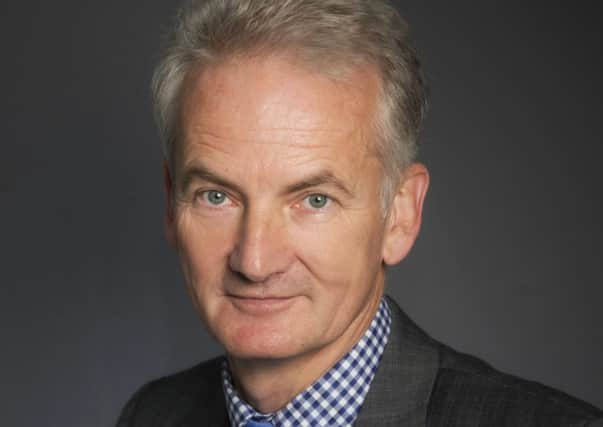Labour candidate in row over ‘eye-watering’ NHS salary


Mark Hayes has temporarily stood aside from some decision-making to avoid conflicts of interest at NHS Vale of York Clinical Commissioning Group (CCG) where The Yorkshire Post can reveal he was paid £180-£185,000 as chief clinical officer in 2013-14.
Dr Hayes told colleagues after his selection as candidate in Selby and Ainsty that he will continue to provide “strategic direction and performance guidance” in the top role at the CCG, which is in charge of NHS spending worth £360 million.
Advertisement
Hide AdAdvertisement
Hide AdBut he came under fire in August after he abstained in a CCG governing body vote which rejected plans to reintroduce IVF treatment, triggering a furious reaction from campaigners.
Last night he faced calls from his Tory opponent for a cut in his “eye-watering” rate of pay.
Figures show other CCGs in the region have posts paid at similar rates to Dr Hayes but with doctors working part time or with NHS managers as accountable officers who receive less. The next highest CCG salary in Yorkshire was paid last year to Vicky Pleydell, who earned £150-155,000 as clinical chief officer at Hambleton, Richmondshire and Whitby CCG, which has a budget of £175m.
Nigel Adams, Tory MP for Selby and Ainsty, described Dr Hayes’ salary as “extraordinary”.
Advertisement
Hide AdAdvertisement
Hide AdHe said: “£185,000 a year is an eye-watering amount of money for a public sector worker when the taxpayer picks up the bill.
“I have no problem with GPs being parliamentary candidates. However they do not make sensitive decisions, such as a doctor who heads a clinical commissioning group, and I think Dr Hayes needs to take a long hard look at this conflict of interest.
“The decision not to take part in the vote on IVF means he is not fulfilling his role 100 per cent and the CCG’s board should consider looking at his salary.”
In a statement, NHS Vale of York CCG said his salary was in line with similar posts. A deputy was being appointed from existing GPs on its governing body who would not earn extra pay.
Advertisement
Hide AdAdvertisement
Hide AdA spokeswoman added: “Mark is continuing in his chief clinical officer role with the only changes being that he has dropped his working days from five to four per week from October 1 and in certain potential situations of perceived conflict of interest will defer the chief clinical officer role to the deputy chief clinical officer.”
Hambleton, Richmondshire and Whitby CCG said Dr Pleydell was accountable for the performance of the CCG, combining the role of clinical lead and chief executive. A spokeswoman added: “She chose to work solely for the CCG rather than continue working as a GP in her practice and out of hours so she could put all her energies into the role.”
Figures show there are significant differences in involvement by family doctors on governing bodies in the GP-led groups.
Helen Hirst, chief officer for two Bradford CCGs where GPs typically work two days a week, said: “Their enthusiasm, vision and knowledge of patients’ needs are vital for the CCGs to make the right decisions about our communities’ health and wellbeing.”
Advertisement
Hide AdAdvertisement
Hide AdNHS Sheffield CCG, where seven GPs on its governing body each work 14 hours a month, said its GP members were “highly committed” and ensured it remained “clinically led and dedicated to making Sheffield a healthier place to work and live”.